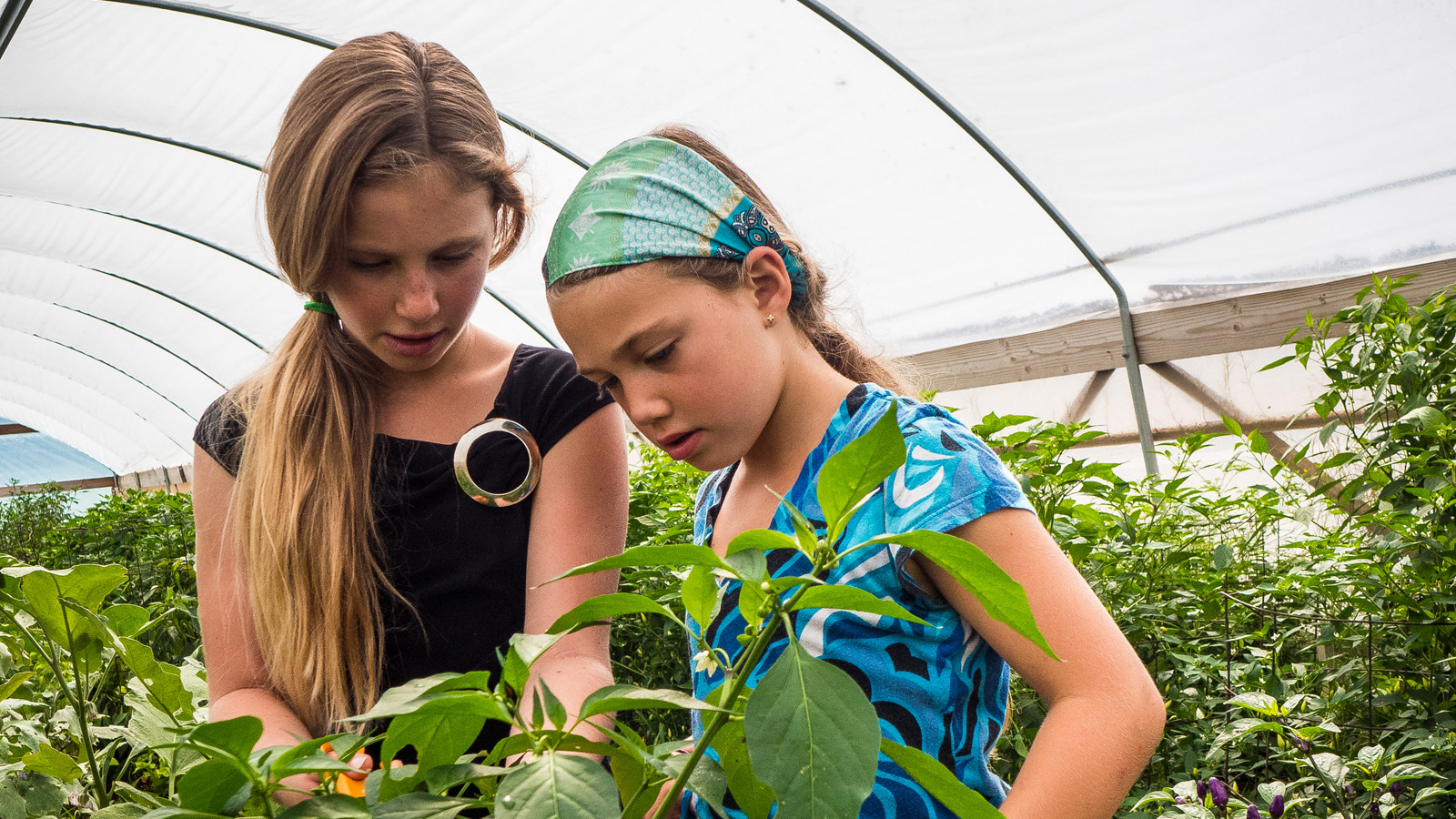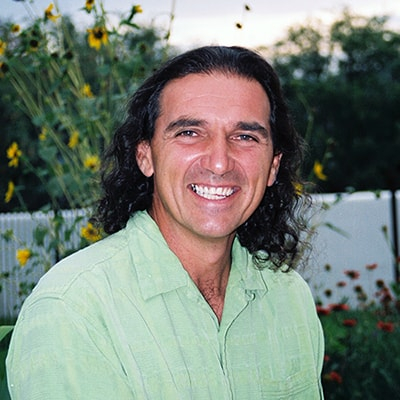“Treat the Earth well: We do not inherit the Earth from our ancestors, we borrow it from our children.”
– Native American Proverb
In Europe, I grew up as a city boy with no real-life gardening or farming experience. Our family’s backyard gardens were very small, and only if there was a backyard—which my parents and siblings didn’t have because we lived mostly in apartments on upper floors, surrounded by lots of other apartments. Some of my friends who lived in houses with backyards had ornamental plants in them, but very few grew much food. The green spaces were city or ball parks where we went to play as young children, and when we got older we were able to venture out into the adjacent forest that had brooks and some small lakes.
Even if those park and forest experiences were exciting for me, my dominant childhood memories are from my inner-city neighborhood, with daily pub brawls, arguments in street alleys, and people hustling for extra money, with, of course, those who were stronger and more influential getting what they wanted. My friends and I learned quickly to adopt the streetwise consciousness or we would be left behind in the struggle to get to the top. Our family daytrips and vacations into the countryside and even to other countries were for the sole purpose of getting reprieve, relaxation, and rest so that we could cope better with the city demands of constant competition and bullying.
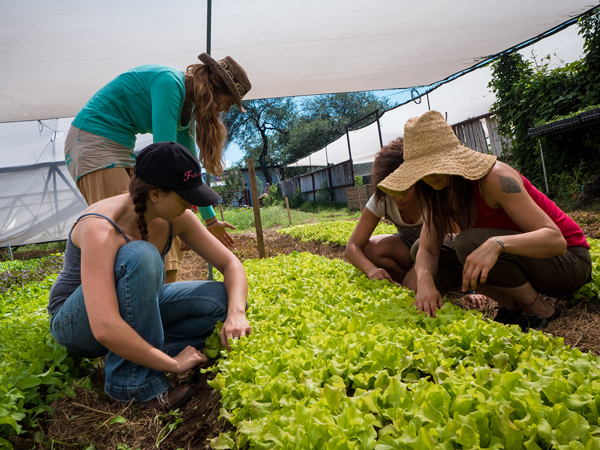 In my mid teens I got to know a few people who had migrated to the city from their rural farm homes, and, on our visits outside of the city, I had opportunities to observe and interact with some of the local farming families. Their consciousness was different from ours who had grown up in the highly competitive and fast-paced city, and these new residents in our neighborhood were quickly stereotyped as slow thinkers and “backward” people. Because they weren’t streetwise like us city-dwellers, we thought we were “superior” to them.
In my mid teens I got to know a few people who had migrated to the city from their rural farm homes, and, on our visits outside of the city, I had opportunities to observe and interact with some of the local farming families. Their consciousness was different from ours who had grown up in the highly competitive and fast-paced city, and these new residents in our neighborhood were quickly stereotyped as slow thinkers and “backward” people. Because they weren’t streetwise like us city-dwellers, we thought we were “superior” to them.
I started to move away from that perspective when I got to know one of those high school kids who had moved from the country and with whom I felt an affinity. We often sat next to or close to each other in several of our daily classes and quickly became friends. He got teased every day by others for his village accent, and some of the boys were actually mean and bullying with him. But he wasn’t shy of defending himself and won most of the fights he was forced into. Otherwise, he was kind and generous in all he did. His mind was sharp, and he was a good team player in sports. He rarely spoke of his upbringing, for he had been made to feel ashamed of his rural roots. He often spoke up when a teacher showed favoritism to certain students, and his questions and answers in class were deeply challenging for many of the teachers.
In my later teen years, I became part of the workforce and shed any leftover remnants of prejudice towards non-city dwellers because I met many co-workers from small villages and farming communities who became good friends of mine. I enjoyed their company, and their rhythm and outlook in life seemed more relaxed and happier than mine. They had what I wanted for myself, a sense of peacefulness.
Years later, I heard that my high-school friend had died. As I listened to the stories, I found out that he had chosen to return to his village and worked for the forest service. But he grew more and more discontent with the practices of cutting trees and destroying habitats of wildlife for development and “progress” and became an outspoken environmentalist, thus a threat to the established way of treating the forests. The stories tell of a tree falling on him and killing him during a clear-cutting of a small forested area. His biological family made news because they accused his co-workers of being responsible for his death and that they could have prevented this accident. There were even stories that possibly they caused the accident in order to silence his protests against clear-cutting, which was a threat to their jobs.
“What we are doing to the forests of the world is but a mirror reflection of what we are doing to ourselves and one another.”
– Mahatma Gandhi
I also had become a very active environmentalist and understood what had happened to my friend, for I too had experienced the hatred of others who felt threatened with the possibility of losing their livelihoods if the environmental laws would change to higher standards of sustainability. In trying to use the political process to making changes, I realized that this method didn’t seem to work too well, for we were in battle with huge corporate powers that had control over the politicians.
I became angrier with the “establishment” and a justice system that all too often did not hand out true justice. Often our marches and protests that started out peacefully were stopped with violent means by the police force. Many times I was one step away from being arrested or hurt. I soon realized that my anger and frustration over these circumstances was getting out of hand, and I feared that I would become violent myself if I continued in this manner.
“We often forget that we are nature. Nature is not something separate from us. So when we say that we have lost our connection to nature, we’ve lost our connection to ourselves.”
– Andy Goldsworthy
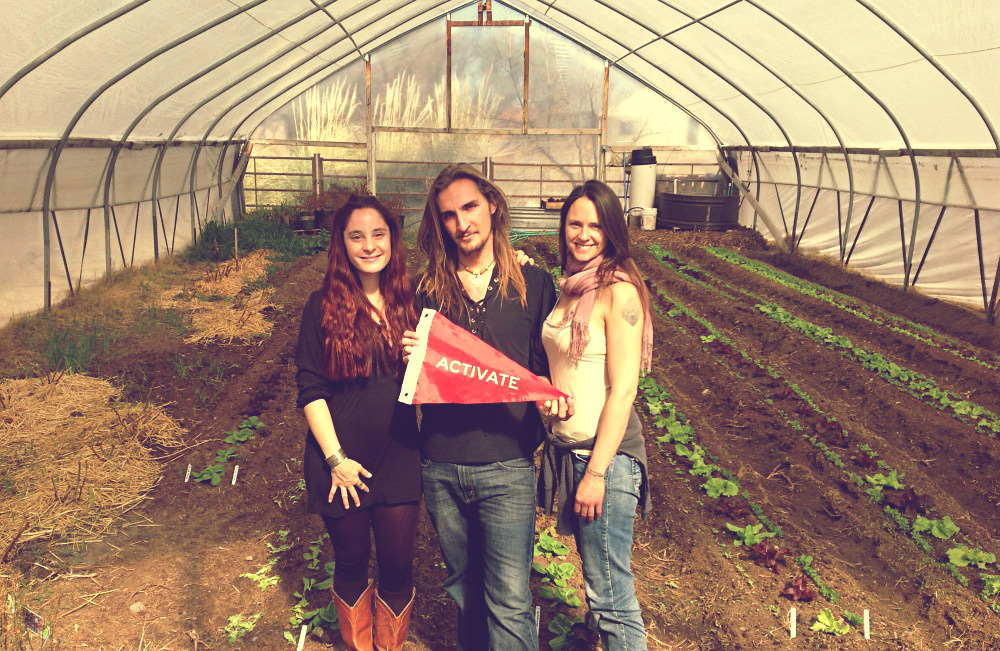 So I started looking for solutions outside of what I and my fellow environmentalists had been doing. Relying on my earlier experiences with those who had roots in rural farming, I began to spend more and more time in the countryside contemplating and enjoying the company of people there rather than in the city. I found that I was more at peace in nature, and my anger and frustration began to dissipate. My consciousness began to shift into seeking spiritual answers to the many problems in the material world.
So I started looking for solutions outside of what I and my fellow environmentalists had been doing. Relying on my earlier experiences with those who had roots in rural farming, I began to spend more and more time in the countryside contemplating and enjoying the company of people there rather than in the city. I found that I was more at peace in nature, and my anger and frustration began to dissipate. My consciousness began to shift into seeking spiritual answers to the many problems in the material world.
Then one night I heard the calling very clearly in my mind to leave my life as it was and give up everything I was attached to. I felt led by a Higher Power to find a greater purpose and destiny.
“Once you make a decision, the universe conspires to make it happen.”
– Ralph Waldo Emerson
After leaving my family, friends, and country in 1987, I found myself living in a wilderness setting in the U.S., learning how to live simply and self-sufficiently with a small group of people on 40 acres of pristine land in the northern California mountains. Over the next five years I lived without electricity (except for minimal lighting provided by one solar panel), which meant no television, phones, or any other amenity that used electricity. My daily routine was focused on growing food naturally and making everything we needed from the natural materials around us, with the ideal of buying very little.
“The glory of gardening: hands in the dirt, head in the sun, heart with nature. To nurture a garden is to feed not just the body, but the soul.”
– Alfred Austin
One reason why so many spiritual seekers are drawn to the Indigenous people is that they have within their spiritual way of life an understanding of the need for human partnership with the natural world. When Indigenous people became agriculturists in their evolution, they started teaching through their eldership how to go about tending to their gardens in a spiritual way. Ceremonies of all kinds evolved and were passed on from generation to generation, becoming an integral part of their way of living in balance with the natural world. And though much of their lifestyles have been altered by the encroachment of the profit-motivated dominant culture of materialism, many Indigenous individuals are returning to their traditional ways of living through spiritual attunement, respect for all life, and continuous learning.
After leaving my wilderness mountain home, my environmental activism continued on Native American reservations, trying to support the elders of the different tribes to reach especially the young people to give up their self-destructive tendencies and hopeless lifestyles. The way of the elders was to bring everyone together through spiritual ceremonies and then discuss and come up with solutions for each individual problem.
The American Indian philosophies and spiritual prophecies have always intrigued me, and when I met some of their “holy” men and women, I heard them saying in various ways that if you plant the seeds with the original instructions the Creator had given human beings, there would be a healing amongst all peoples. I danced and sang along with them many songs that gave thanks to the Creator and cried out for help from that Great Spirit who is the Great Mystery.
“The recovery of the people is tied to recovery of food, since food itself is medicine—not only for the body but also for the soul and the spiritual connection to history, ancestors, and the land.”
– Winona LaDuke
Within a few years I had met many individuals who wanted to become spiritual warriors in helping to save our world. I started to meet people of all walks of life who had joined alternative communities across the American Continent (North, Central, and South) as their way of helping bring the change needed for our endangered planet. Those who were able to grow their own food had more strength, conviction, and hope for the future. If they had spiritual elders, they were able to live by spiritual principles that united them. Little did I understand then how difficult it would be to live a spiritual life as a gardener and activist for helping this world shift from the self-destructive course of its selfish and consumer-oriented human population.
”The heart is like a garden. It can grow compassion or fear, resentment or love. What seeds will you plant there?”
– Jack Kornfield
In my personal reflections and continuing healing process, I increasingly realize that I am the one who needs changing first before I can reflect divine pattern and the light that is needed to overcome the darkness that this world has unfortunately embraced. Gardening is a healing connection to the Universe Mother Spirit that, if internalized, can become a gift to nurture the souls of this broken world.
As I observe and study divine pattern in the natural world in our gardens, there is a continuous flow of communication, of which I am a part. If I am out of alignment, there is a cause-and-effect response that requires change. If I am in tune with what my active role is in the garden, then I can hear the celestial instructions beyond my own experience and insights, which leads to new solutions that seem like minor personal revelations that confirm the truth of the Divine. If this simple way of communicating with Divine can be found in gardening and nature, then there is a solution for anyone who seeks.
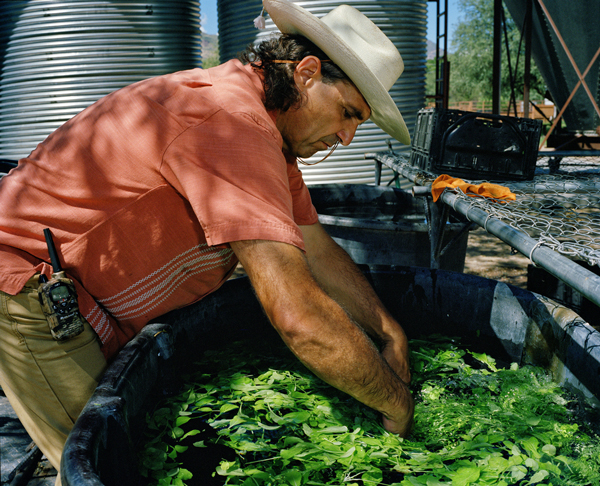 This morning, almost thirty years after leaving Europe, I walked outside at dawn and smelled the air after the night had brought a good monsoon rainstorm that soaked the desert plants and the dry, parched earth. A sense of deep peace and contentment brought a big smile to my face. I was breathing in the rhythm of the living earth that reflected joy and gratitude in the varied songs of the birds, the refreshing smells of wet desert plants and pastures of alfalfa, and the clear intensity of the surrounding mountains viewed through rain-washed air.
This morning, almost thirty years after leaving Europe, I walked outside at dawn and smelled the air after the night had brought a good monsoon rainstorm that soaked the desert plants and the dry, parched earth. A sense of deep peace and contentment brought a big smile to my face. I was breathing in the rhythm of the living earth that reflected joy and gratitude in the varied songs of the birds, the refreshing smells of wet desert plants and pastures of alfalfa, and the clear intensity of the surrounding mountains viewed through rain-washed air.
I looked over several acres of natural vegetable gardens that I and a team of other spiritual cosmic family members grow together. The plants are alive and vibrant after struggling for many weeks with 100-plus-degree temperatures. Dozens of acres of pastures are lush with grains, seeds, and beans for human consumption or grasses for the many animals we care for.
The homes of all community members in this EcoVillage are clustered closely to each other, and each building has a special character and design, modified or new. The rainwater catchment tanks are filling, and our stormwater catchment basins have soaked up the excess water and are nurturing the plants and trees planted in and around them. Everywhere I looked, I saw divine pattern in potential and some in actualization. We have created microclimates that have brought life to the harsh desert environment, and in the vein of true permaculture there is harmony of people living closely with the rhythm of nature.
Most importantly, our lifestyle and gardening practices are not just more sustainable and natural, we apply solutions with a spiritual foundation for all aspects of life, and this has united a diversified group of people. This model that we are creating can be applied worldwide, adapted to the specific uniqueness and needs of each area and group of people, using spiritual solutions—divine administration principles—as the foundation.
We are now one of the largest EcoVillages in this country, with more than one hundred people of all ages and from many continents, who live by an epochal revelation (The Urantia Book and The Cosmic Family volumes). Our life inspires many visitors and students to become spiritual activists who are also gardeners, who can assist in bringing our world into a more peaceful and healthy state.
“The first peace, which is the most important, is that which comes within the souls of men when they realize their relationship, their oneness, with the universe and all its powers, and when they realize that at the center of the universe dwells Wakan-Tanka, and that this center is really everywhere, it is within each of us. This is the real peace, and the others are but reflections of this. The second peace is that which is made between two individuals, and the third is that which is made between two nations. But above all you should understand that there can never be peace between nations until there is first known that true peace, which, as I have often said, is within the souls of men.”
– Black Elk
This morning, facing the dawn’s rising sun, I gave thanks to the Universe Mother Spirit who healed me, weaned me off of city living, and showed me the gentleness and sensitivity of all life. I gave thanks to our Universe Father (Christ Michael) for the direction he has given me to begin actualizing my purpose as a Cosmic Destiny Reservist. I gave thanks to the First Source and Creator of All, the Universal Father, for sharing a fragment of Him within me that assists me in perfecting myself in the virtues of God.
I and my fellow cosmic family members in this intentional community consider ourselves Change Agents to help birth a new world that is in alignment with the original instructions given by the Creator. Our children are the future of this beautiful planet that we call Urantia. If you hear the calling (as I did about thirty years ago), come and join us in this great and very significant SpiritualutionSM movement or become an activist for the correction and betterment in the corner of the world in which you now live.
New leaders from many walks of life have emerged to put out the call for all to wake up and become the healers of the land and of ourselves. One small change can add to many small changes, which create a ripple effect across our world. Let us all realize that those small steps we take do make a difference, even tending a small garden, which can bring lasting personal peace, hope, and vision—at least for those who are willing to see with new sight.
“The time for the lone wolf is over. Gather yourselves! Banish the word struggle from your attitude and your vocabulary. All that we do now must be done in a sacred manner and in celebration. We are the ones we’ve been waiting for.”
– Hopi Prophecy

